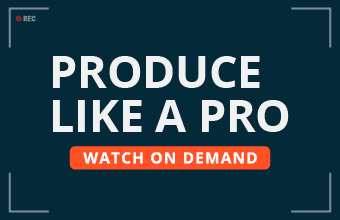Freedom of expression—it’s the bulwark of democracy and a lasting strength of the United States. We expect it, we want it, and we rightly rebel against the threat of losing it. So how did we get to a place where we are relying on a multi-deci-billionaire as the arbiter of what constitutes censorship and what doesn’t (ironic in a world where both sides rail against “big tech oligarchs” controlling free speech—the side most recently arguing against them now praises one seemingly coming to its defense and flipping the script).
Is it even a relevant discussion given we are talking about private platforms, and anyone can start their own blog or website anytime to circumvent it? Any serious person recognizes there’s no such thing as censorship on the web. But today’s “thinkers” make gobs of cash pretending they’re being muzzled so they can monetize their supporters, even as they are barking from the podium they claim is shutting them up.
For marketing and communications professionals, what are the implications of engaging on a platform where defining free speech is seeing who can get away with posting the most objectionable content in a daily spiral downward? And for brands, focused on ensuring they are meeting the sensitivities of active, activist, ever-changing constituent groups, what are the reputational risks of staying on and the economic risks of signing off?
We have spent the better part of the past 20 years degrading the tremendous potential of social media as a platform for democratizing information
Twitter, which has (maybe the reality is, the past tense “had” is more realistic) the potential to function as a town square is, instead, increasingly seen as a place for hurling invective and launching misinformation and disinformation. Sure, it’s got a decent, if stagnant, membership, composed primarily of neutral participants who just want to scroll for news and engage periodically. You know, the kind of people who make great audiences and customers for companies. But the noise, clutter and bots have so overwhelmed it, that it is right to question its viability.
Against this backdrop, one of the world’s greatest tech entrepreneurs has anointed himself the arbiter of what is and isn’t censorship and what connotes a town square. Sure, he’s a provocateur, not immune to posting suspect information on his own handle. But what could possibly go wrong if you’re a company looking to market yourself in this context.
And how have America’s leading companies responded?
Many have temporarily pulled the plug on advertising on Twitter. My guess is Twitter ownership didn’t see that coming. There is a reality in which people become so enmeshed in their own narrative that they block out anything they consider noise. For a self-appointed ombudsman of free speech, everyone and everything else is noise. And once, you’ve paid four-times the value of a platform just to buy it, what’s another few billion in lost ad revenue? Moreover, these companies may change their minds quickly and return to the platform.
My hope is that, as they do, they will take a hard look at the balance between reputation and revenue potential.
We know by now that we haven’t been able to depend on the culture of Twitter to govern itself. And while its new owner may have best intentions in mind, there’s no guarantee how long it will take for him to establish the equilibrium companies are seeking. Meanwhile companies are now one of the few institutions Americans still trust. So, in today’s active, activist environment, they should proceed with caution and preserve that precious brand equity. There are plenty of places to engage that aren’t embroiled in a political maelstrom every day.
In the days when print and broadcast ruled, decisions were easy. We enjoyed free speech and respected the fact that editors ensured balance. We didn’t call it censorship, we called it editing. We didn’t even call it censorship when networks had employees called “censors.” Most were content with the equilibrium of free speech and decency in a vibrant information ecosystem.
In a world where these norms no longer exist and every individual fancies themselves an expert, the din is likely to stay loud
So, it will be incumbent on companies and their marketing and communications representatives to take a nuanced path to determining where and when is the right place to engage in order to remain trusted and still drive market share. Because short of a complete rewriting of Section 230, placing onus of risk on technology platforms as publishers (what could possibly go wrong), there will continue to be participants in the town square who litigate the First Amendment in the context of their own variable character. And we marketing and communications experts should be ready to provide the right counsel, situationally, and with a stronger voice than ever, to help clients navigate this entrenched reality.
As a strong advocate of the First Amendment, a believer in capitalism and a long-committed proponent of social media to drive great campaigns, I’ll be looking to find the right way to ensure my clients benefit from acting responsibly and remaining engaged. This isn’t remotely political—it’s pragmatic. It’s our job to understand, counsel and deliver. So, let’s strap up and get ready.








